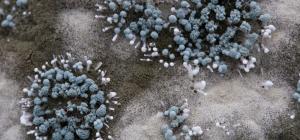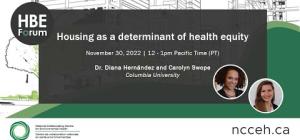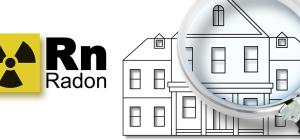
Radon: Public Health and Cancer Prevention – A New Whiteboard Video from the NCCEH

Radon gas exposure is the second leading cause of lung cancer in Canada after smoking and is estimated to cause over 3,000 deaths per year - which is more than motor vehicle collisions (~2,200 deaths in 2016). The National Collaborating Centre for Environmental Health has been developing different Radon resources to support public health professionals in addressing this health risk and has recently released an informational whiteboard video to help navigate the issues associated with Radon exposure prevention.
This whiteboard video highlights several key ideas around radon that are important for public health. The need for action is urgent but reducing radon exposure is challenging as there is often confusion as to which agencies should be responsible for addressing radon levels in private homes, schools, rental housing, and public buildings. Generally, action needs to be taken by residents in their homes -- spaces difficult to regulate under current legislation. Additionally, while there are new requirements embedded within building codes aimed at reducing radon levels in new homes, these are still mostly half-measures rather than actual radon reduction solutions. These measures, while progressive, still leave the majority of residents on their own to address a problem most aren’t even aware of.
While these challenges can quickly lead to inertia, the video highlights several things that public health professionals can do:
- More radon education. It is difficult to act on a problem when you don’t know about it and the large majority of Canadians are not aware of radon or the associated health risks.
- Supporting policies to reduce radon exposure in public spaces, such as making testing a part of licensing in child care centres and schools.
- Host and promote testing through programs such as Take Action on Radon.
- Engagement with other professions outside of public health such as other government agencies, building code officials, city and community planners, radon professionals, and municipal staff and council.
Radon is not a new problem but it is a serious environmental health risk. Regardless of your role in public health, there are opportunities to get involved. Everyone can play a role in reducing cancer rates.
More information
For more information on radon check out:
- the NCCEH’s topic page on Radon Resources (focused on education, testing, and remediation in Canada)
- the Canadian Association of Radon Scientists and Technologists and
- the NCCEH post on the 100 Radon Test Kit Challenge for Canada
Contact Us
We want to make public health information readily available in formats that work for different audiences and using videos like this one can help us do that. If this video is helpful to you, or if there are other environmental health issues that you want to learn about in this way, let us know!








